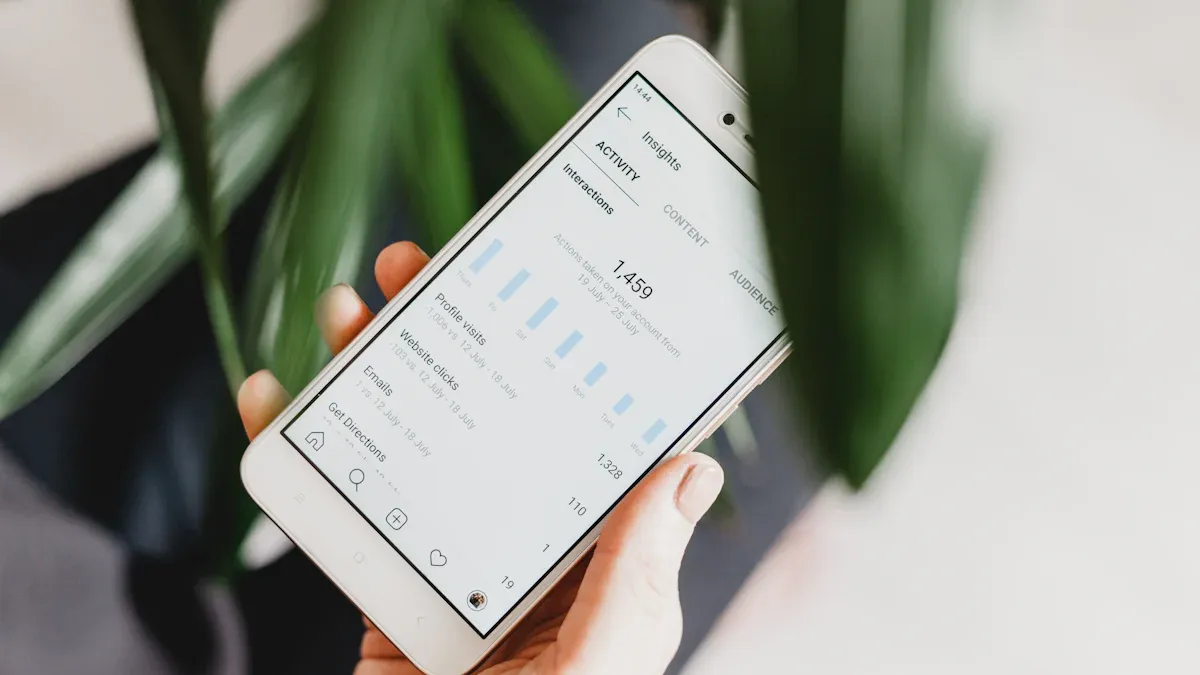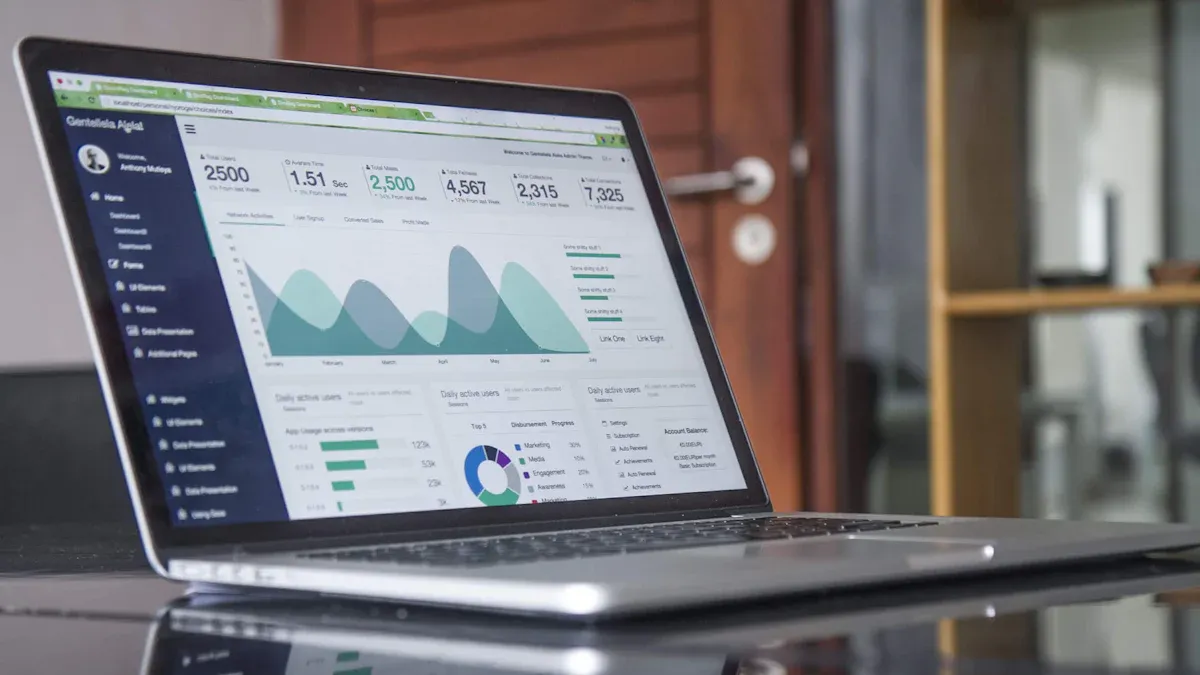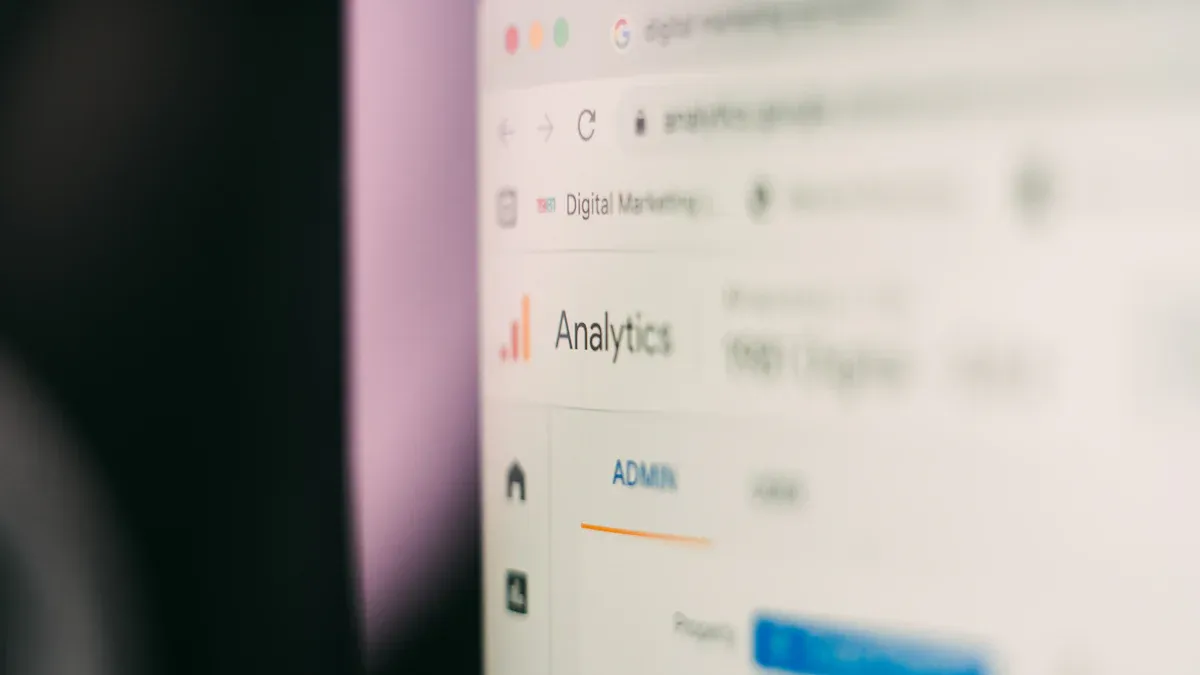Exploring the Features of Popular Influencer Discovery Platforms

In today’s fast-paced digital world, finding the right influencers can feel like searching for a needle in a haystack. That’s where an influencer discovery tool steps in to save the day. These tools simplify the process, helping you connect with influencers who align with your brand. Did you know 55% of companies already use these platforms? It’s no surprise—they make influencer marketing campaigns smoother and more effective.
Without a reliable tool, you might struggle to find relevant influencers or spend hours on manual searches. Traditional methods often fall short, leaving you with less-than-ideal collaborations. But with tools like Lillian, you can skip the hassle. Designed to help you discover micro-influencers and analyze their potential, Lillian ensures you make data-driven decisions that drive results.
Key Takeaways
Influencer tools help save time by finding influencers quickly.
Pick platforms with tools to track results and check success.
Choose a tool that fits your goals, big or small.
Make sure the tool can grow as your business grows.
Use features like campaign tools and social media links to work better.
What Are Influencer Discovery Platforms?
Definition and Purpose
Influencer discovery platforms are specialized tools designed to help you find and manage influencers for your marketing campaigns. Unlike traditional marketing tools, these platforms automate the process of searching for influencers, making communication easier and providing real-time data analytics. This automation saves you time and reduces the risk of errors that come with manual outreach. Think of it as having an influencer database at your fingertips, ready to streamline your influencer marketing program.
These tools go beyond just finding influencers. They offer features like campaign management, audience data analysis, and fraud prevention. Whether you're looking to connect with micro-influencers or analyze influencer insights, these platforms simplify the process and make it more efficient.
How They Support Influencer Marketing Campaigns
Influencer discovery tools enhance your campaigns by using advanced analytics and AI-driven processes. They analyze vast amounts of data to match you with influencers who align with your brand's goals. This precision improves the effectiveness of your campaigns. For example, a beauty brand used predictive analytics to identify influencers with high engagement rates, leading to a 40% boost in sales within a month.
These tools also automate tasks like outreach and tracking, saving you hours of work. You can quickly identify influencers, monitor their performance, and measure influencer marketing ROI. Real-time data and performance tracking help you make informed decisions, ensuring your campaigns stay on track.
Common Use Cases for Businesses
Businesses use influencer discovery platforms for a variety of purposes. These tools help you find influencers whose followers match your target audience. They also provide influencer insights, allowing you to create campaigns that resonate with your audience. Additionally, they simplify workflows, manage payments, and streamline campaign briefs.
Here are some common ways businesses use these platforms:
Find influencers and analyze their potential.
Recruit and onboard creators.
Manage relationships and measure ROI.
Conduct competitive analysis to stay ahead in the market.
By leveraging these features, you can build a successful influencer marketing program that delivers measurable results.
Key Features to Look for in an Influencer Discovery Tool

Influencer Search and Filtering
Finding the right influencers can feel overwhelming, but search and filtering features make it much easier. These tools allow you to narrow down your options based on specific criteria like location, niche, audience demographics, and engagement rates. With an influencer database at your fingertips, you can quickly identify micro-influencers or larger creators who align with your brand.
To get the most out of these features, follow these best practices:
Define your campaign goals.
Understand your target audience.
Focus on engagement metrics instead of just follower count.
Use filters to analyze audience demographics and detect fake followers.
Review past collaborations to ensure the influencer fits your brand.
By leveraging these tools, you’ll save time and avoid the guesswork, ensuring your influencer marketing campaigns are set up for success.
Campaign Management Tools
Managing influencer marketing campaigns can be chaotic without the right tools. Campaign management features simplify your workflow by helping you plan, execute, and monitor campaigns in one place. You can create campaign briefs, assign tasks, and schedule posts effortlessly. These tools also provide real-time access to campaign performance metrics like audience reach, engagement, and earned media value.
Automation is another game-changer. It reduces manual tasks like sending emails or tracking deadlines, minimizing errors and saving you hours of work. With these comprehensive features, you can focus on building relationships with influencers and driving results.
Pro Tip: Look for influencer marketing software that offers streamlined performance reporting. It’ll help you track campaign performance and make data-driven decisions.
Analytics and Performance Tracking
Analytics and reporting are the backbone of any successful influencer marketing strategy. These tools provide insights into influencer performance, including engagement rates, audience demographics, and ROI. Interactive dashboards let you monitor campaign performance in real-time, giving you a clear picture of what’s working and what’s not.
Social listening tools are another valuable feature. They help you analyze audience sentiment, ensuring your campaigns resonate with your target audience. Plus, customizable dashboards make it easy to track performance metrics and adjust your strategy as needed.
With these insights, you can optimize your campaigns and achieve better results. Whether you’re working with micro-influencers or larger creators, performance tracking ensures you’re always on the right path.
ROI Measurement and Reporting
Measuring ROI is one of the most critical features of influencer discovery tools. You want to know if your investment is paying off, right? These tools provide detailed reports that break down how your influencer marketing campaigns perform. They track metrics like impressions, engagement rates, and even sales generated from affiliate links. This data helps you identify which influencers are driving results and which ones might not be the best fit for your brand.
For example, in a recent campaign, Upfluence tracked each influencer’s performance in real time. They monitored impressions, engagement, and sales from affiliate links. This allowed the brand to focus on high-performing influencers, leading to a 25% increase in sales. Tools like these don’t just stop at tracking—they also integrate with platforms like Shopify and WooCommerce. This makes it easier to directly measure sales and attribute them to specific influencers.
Pro Tip: Look for tools that offer in-depth campaign reports. These reports should provide insights into revenue, brand awareness, and how interactions translate into business outcomes. This way, you can make data-driven decisions and maximize your ROI.
Integration with Social Media Platforms
Seamless integrations with social media platforms are a game-changer for influencer marketing tools. They allow you to connect your campaigns directly to platforms like Instagram, TikTok, and YouTube. This integration enhances your workflow and ensures smooth execution of your campaigns.
Here’s how these integrations benefit you:
Enhanced search capabilities let you filter results based on location, engagement rates, and audience demographics.
Detailed analytics help you track campaign performance effectively.
Streamlined communication makes managing influencer relationships easier.
When your influencer database connects directly to social media, you can maintain consistent branding across all channels. This builds trust with your audience and amplifies your campaign’s impact. Plus, you’ll save time by managing everything in one place.
Did You Know? Tools with seamless integrations also help you monitor campaign performance in real time. This ensures you can quickly adjust strategies to stay on track and achieve your goals.
Comparing Popular Influencer Marketing Platforms

Lillian
Unique Features of Lillian
Lillian stands out as an AI-powered influencer marketing platform designed to simplify your campaigns. With over 120 million influencer data points, it offers unmatched precision in influencer discovery. You can analyze influencers quickly using just a URL, thanks to its real-time data analytics. The platform also provides automated content optimization suggestions, helping you refine your campaigns for better results. Its Chrome extension makes it incredibly convenient to access these features anytime.
Target Audience for Lillian
Lillian is perfect for brand marketing managers, small business owners, and content creators. If you’re looking to save time while finding micro-influencers who align with your brand, this platform is for you. It’s especially useful for those who want data-driven insights to guide their influencer marketing campaigns.
Pricing and Value of Lillian
Lillian offers a 7-day free trial, allowing you to explore its features before committing. Its pricing structure is designed to provide excellent value, especially for businesses that prioritize efficiency and data accuracy.
Pros and Cons of Lillian
Pros:
AI-driven insights for precise influencer selection.
Real-time analytics and automated suggestions.
Easy-to-use Chrome extension.
Cons:
Best suited for small to medium-sized campaigns.
Aspire
Unique Features of Aspire
Aspire excels in integrating with e-commerce platforms like Shopify, making it a go-to choice for social commerce campaigns. Its Agency Services team supports large-scale campaigns with custom strategies, execution, and paid ads. Aspire also offers advanced tools for managing influencer relationships and tracking campaign performance.
Target Audience for Aspire
Aspire is ideal for larger businesses and Fortune 500 companies. If you’re running high-budget campaigns or need seamless e-commerce integration, Aspire is a great fit. Brands like Ruggable, M&Ms, and HelloFresh have successfully used Aspire for their influencer marketing efforts.
Pricing and Value of Aspire
Aspire positions itself as a premium influencer marketing platform. While it’s on the higher end of the pricing spectrum, its robust features and tailored services justify the cost for businesses with larger budgets.
Pros and Cons of Aspire
Pros:
Exceptional e-commerce integration.
Comprehensive campaign management tools.
Tailored services for large-scale campaigns.
Cons:
Higher pricing may not suit smaller businesses.
Upfluence
Unique Features of Upfluence
Upfluence leverages AI to enhance influencer discovery, allowing you to target influencers based on audience demographics and engagement. It simplifies campaign management with a single dashboard for outreach and collaboration. The platform also integrates with Shopify and WooCommerce, enabling you to track ROI directly. Automation tools further streamline repetitive tasks, saving you time.
Target Audience for Upfluence
Upfluence caters to businesses of all sizes, thanks to its flexible pricing. It’s particularly beneficial for those who need detailed insights into influencer profiles and want to manage campaigns efficiently.
Pricing and Value of Upfluence
Upfluence offers flexible pricing options, making it accessible to a wide range of businesses. Its value lies in its ability to combine advanced features with affordability.
Pros and Cons of Upfluence
Pros:
AI-driven influencer discovery.
Seamless e-commerce integration.
Flexible pricing for different budgets.
Cons:
May require a learning curve for new users.
How to Choose the Right Influencer Marketing Platform
Assessing Your Business Needs
Choosing the right platform starts with understanding your business needs. Every influencer marketing tool offers unique features, so you need to identify what matters most to your campaigns. Are you looking to boost brand awareness or drive sales? Knowing your goals will help you narrow down your options.
Think about the type of influencers you want to work with. For example, if you're targeting micro-influencers, you'll need tools that specialize in finding them. Also, evaluate the platform's influencer discovery features and how well it integrates with social media channels. Platforms that offer data-driven insights and user-generated content capabilities can give you a competitive edge.
Here’s a quick checklist to guide you:
Define your objectives.
Identify your target audience and the influencers they follow.
Look for tools with strong analytics and reporting capabilities.
Check for campaign management features that simplify your workflow.
By assessing these factors, you’ll find a platform that aligns with your goals and supports your influencer marketing campaigns effectively.
Setting a Budget
Your budget plays a big role in selecting the right platform. Start by determining how much you can afford to spend and what kind of return on investment you expect. If your goal is brand awareness, you might need a larger budget to work with macro or mega influencers. On the other hand, conversion-focused campaigns often benefit from niche influencers with highly engaged audiences, which may require a different budget strategy.
It’s also important to align your influencer marketing budget with your overall marketing plan. This ensures you’re not overspending while still achieving your goals. Remember, the right platform can help you allocate your budget more effectively by identifying influencers who deliver the best results for your investment.
Evaluating Features That Align with Your Goals
Not all platforms are created equal, so you need to prioritize features that match your marketing goals. For instance, if you want to track performance metrics, look for tools with advanced analytics and reporting. Platforms that offer real-time insights can help you adjust your strategy on the fly.
Social media integration is another must-have. It ensures your campaigns run smoothly across platforms like Instagram, TikTok, and YouTube. Additionally, tools with customizable campaign management features can save you time and effort.
Regularly reviewing your marketing activities is also essential. This helps you identify areas for improvement and ensures your efforts align with your business objectives. By focusing on features that support your goals, you’ll maximize the impact of your influencer marketing campaigns.
Considering Scalability and Long-Term Use
When choosing influencer marketing tools, you need to think about scalability. Why? Because your business won’t stay the same forever. As your brand grows, your marketing needs will evolve. A scalable platform ensures you can keep up with these changes without switching tools or starting from scratch.
Scalability means the platform grows with you. It’s like having a tool that adapts to your increasing workload and campaign complexity. Whether you’re working with micro-influencers today or planning to collaborate with larger creators in the future, a scalable platform has you covered. It provides flexibility to manage campaigns of any size while maintaining efficiency.
Here’s why scalability matters:
It allows the platform to grow alongside your brand.
You can manage campaigns more efficiently, even as they become more complex.
Advanced features help you meet evolving marketing goals over time.
Think about your long-term goals. Are you planning to expand into new markets or target a broader audience? A scalable platform ensures you can handle these changes seamlessly. For example, tools with advanced analytics and audience insights can help you refine your strategy as your target audience shifts. This adaptability saves you time and effort, letting you focus on creating impactful influencer marketing campaigns.
Also, consider the platform’s ability to integrate with other tools. Seamless integration with social media platforms or e-commerce systems ensures your campaigns run smoothly as your operations grow. This kind of flexibility is essential for long-term success.
Choosing a scalable platform isn’t just about meeting today’s needs. It’s about preparing for the future. By investing in the right features now, you’ll set yourself up for success as your brand and campaigns evolve.
Influencer discovery tools have become essential for marketing success. They simplify the process of finding influencers, managing campaigns, and tracking performance, saving you time and effort. From Aspire’s seamless e-commerce integration to Upfluence’s AI-driven targeting, each platform offers unique features tailored to different needs. Whether you’re looking for advanced analytics or scalable solutions, these tools provide the insights you need to make informed decisions.
To choose the right platform, start by defining your objectives and understanding your audience. Evaluate the type of influencers you want to work with, like micro-influencers, and match platform features to your goals. Testing platforms and consulting industry peers can also guide your decision. For a data-driven, user-friendly option, Lillian stands out as a top choice, offering precision and efficiency to elevate your influencer marketing campaigns.
FAQ
What is the main benefit of using influencer discovery platforms?
These platforms save you time by automating the process of finding influencers. They also provide data-driven insights to help you choose influencers who align with your brand and goals. This makes your influencer marketing campaigns more effective and efficient.
Can small businesses benefit from working with micro-influencers?
Absolutely! Micro-influencers often have highly engaged audiences. They can help small businesses connect with niche markets and build trust. Plus, they’re usually more affordable than larger influencers, making them a great option for businesses with limited budgets.
How do these tools track influencer performance?
Most platforms offer analytics features that monitor metrics like engagement rates, audience demographics, and ROI. These insights help you evaluate how well an influencer is performing and whether they’re contributing to your campaign’s success.
Are these platforms easy to use for beginners?
Yes, many platforms are designed with user-friendly interfaces. Tools like Lillian even offer Chrome extensions and free trials, making it simple for beginners to explore features and get started with influencer marketing.
Do these tools integrate with social media platforms?
Yes, most platforms integrate seamlessly with Instagram, TikTok, and YouTube. This allows you to manage campaigns, track performance, and maintain consistent branding across multiple channels without switching between tools.
See Also
Exploring Key Features of Leading Influencer Discovery Tools
Top Ten Influencer Discovery Platforms to Use in 2024
Best Influencer Analytics Tools to Check Out in 2025
